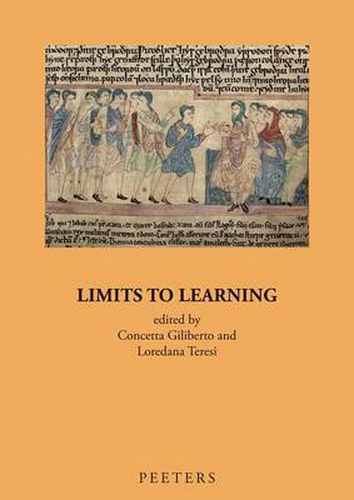Readings Newsletter
Become a Readings Member to make your shopping experience even easier.
Sign in or sign up for free!
You’re not far away from qualifying for FREE standard shipping within Australia
You’ve qualified for FREE standard shipping within Australia
The cart is loading…






In the history of early medieval culture in Western Europe, limits and boundaries define the intellectual landscape. These landmarks range from manuscript contexts to ‘genres’, from authorial shortcomings to the paucity of books and means, from moral or doctrinal constraints to self-imposed limitations for didactic purposes, and from the origin of the world (Genesis) to its conclusion (Doomsday) - the temporal limits of the Christian narratio of human history. Sometimes these confines were perceived as being too narrow, inviting extension and transgression. At other times, they were seen as necessary and functional, especially for didactic or pedagogical reasons. Boundaries, in short, constitute frameworks which help us understand the significance or role of a given text in a given context. The essays here gathered focus on the production, adaptation and recontextualisation of letters, words, texts or clusters of texts in the context of the early medieval intellectual tradition. Hailing from either the vernacular or the classical tradition, such wholesome learning was often modified to create new systems of scholarship, for new purposes, in new cultural milieux. Subject to the perimeters of these cultural environments, this reinterpretation of scholarship often served to reduce tensions between different conceptual frameworks, such as between secular learning and religious orthodoxy, between pagan vestiges and Christian belief, or, simply, between two different didactic approaches. The articles in this volume were first presented at the third workshop of the ‘Storehouses of Wholesome Learning’ project (Leeuwarden, 2007). Once put together like the pieces of a jigsaw puzzle, the articles - whether devoted to such writers as Bede, Alcuin and Alfric, or to, for example, the anonymous De diebus malis - provide an overall picture. The ‘limits to learning’ are often overcome, but there is a keen awareness of the difficulties faced by a medieval author who had to cope with languages such as Greek and Latin, and deal with works such as the Bible or the De nuptiis Philologiae et Mercurii. As witnesses to the circulation of these texts, manuscripts also set their physical boundaries. It is within a codex or even within a single folio that an image, an alphabet series, a colophon, a comment or a text lived and is given new life. A renewed awareness of the spatial collocation of the works under examination in this volume has allowed its contributors to look beyond the limits of the past.
$9.00 standard shipping within Australia
FREE standard shipping within Australia for orders over $100.00
Express & International shipping calculated at checkout
In the history of early medieval culture in Western Europe, limits and boundaries define the intellectual landscape. These landmarks range from manuscript contexts to ‘genres’, from authorial shortcomings to the paucity of books and means, from moral or doctrinal constraints to self-imposed limitations for didactic purposes, and from the origin of the world (Genesis) to its conclusion (Doomsday) - the temporal limits of the Christian narratio of human history. Sometimes these confines were perceived as being too narrow, inviting extension and transgression. At other times, they were seen as necessary and functional, especially for didactic or pedagogical reasons. Boundaries, in short, constitute frameworks which help us understand the significance or role of a given text in a given context. The essays here gathered focus on the production, adaptation and recontextualisation of letters, words, texts or clusters of texts in the context of the early medieval intellectual tradition. Hailing from either the vernacular or the classical tradition, such wholesome learning was often modified to create new systems of scholarship, for new purposes, in new cultural milieux. Subject to the perimeters of these cultural environments, this reinterpretation of scholarship often served to reduce tensions between different conceptual frameworks, such as between secular learning and religious orthodoxy, between pagan vestiges and Christian belief, or, simply, between two different didactic approaches. The articles in this volume were first presented at the third workshop of the ‘Storehouses of Wholesome Learning’ project (Leeuwarden, 2007). Once put together like the pieces of a jigsaw puzzle, the articles - whether devoted to such writers as Bede, Alcuin and Alfric, or to, for example, the anonymous De diebus malis - provide an overall picture. The ‘limits to learning’ are often overcome, but there is a keen awareness of the difficulties faced by a medieval author who had to cope with languages such as Greek and Latin, and deal with works such as the Bible or the De nuptiis Philologiae et Mercurii. As witnesses to the circulation of these texts, manuscripts also set their physical boundaries. It is within a codex or even within a single folio that an image, an alphabet series, a colophon, a comment or a text lived and is given new life. A renewed awareness of the spatial collocation of the works under examination in this volume has allowed its contributors to look beyond the limits of the past.